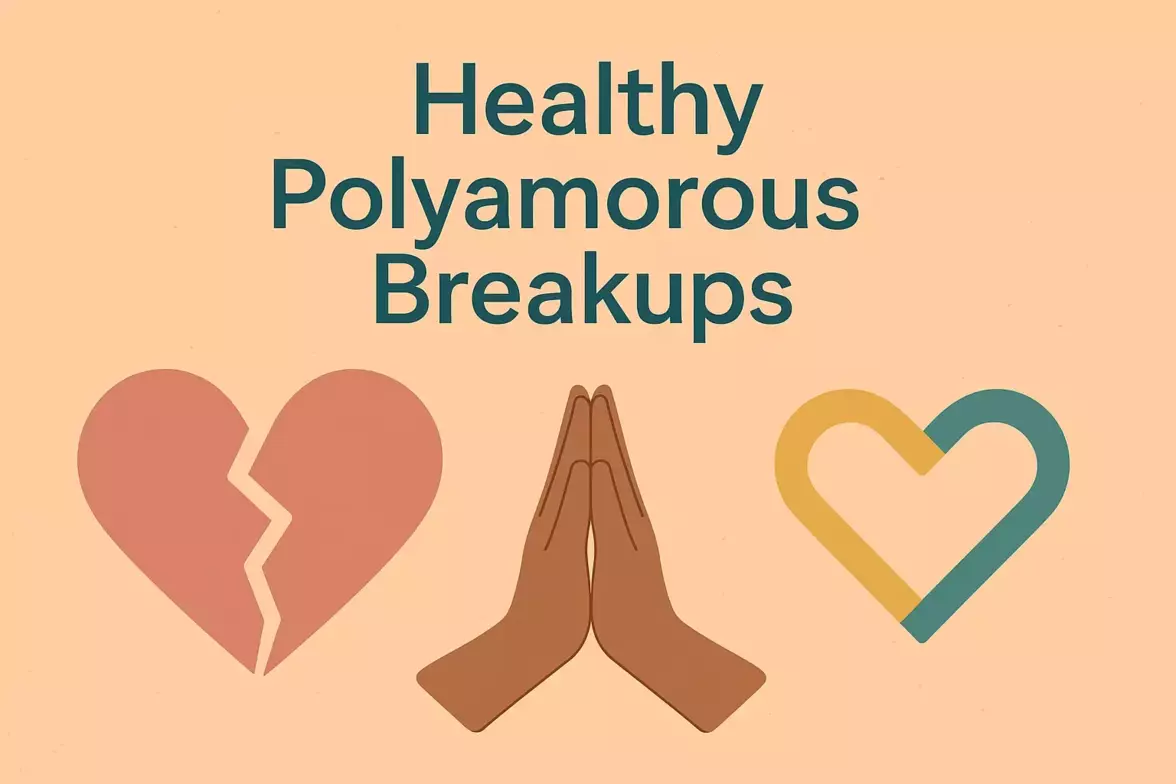
In polyamorous relationships, love can be in beautiful abundance: with multiple connections, layered emotions, and shared growth between partners. But just as in any relationship, sometimes connections shift, and endings become part of the story.
A breakup, even in polyamory, needn't mean failure. Instead, it can be a healthy transition-an opportunity to honor what was, make space for healing, and preserve the community and care that often remain.
1. Redefine What “Breakup” Means
In polyamory, endings are not always black-and-white; sometimes a romantic connection transitions into a friendship, or a partnership evolves into a co-parenting or chosen-family bond. Rather than thinking of a breakup as some sort of collapse, try re-framing the event as a restructuring of the relationship.
This approach honors the love present while leaving room for growth and change.
2. Speak with Compassion
Polyamorous networks are built upon and foster honest, kind communication-and this doesn't stop when any given relationship ends. Open dialogue helps clear the air and avoid misunderstandings, especially when metamours, or partners of partners, are part of the larger dynamic.
Be upfront about what you want and where your boundaries are, and don't forget to check in with the shared partners as to how that change might impact them. Compassionate communication does not mean avoiding discomfort but rather meeting it head-on with empathy and accountability.
3. Allow Grief and Growth
Even in healthy endings, the grief is real. You might be mourning not just the person, but the version of yourself that existed within that relationship. Give yourself permission to feel sadness, relief, confusion — whatever comes up.
Polyamory invites us into complexity, including complex emotions. To heal, one may lean on other partners for support, journal, go to therapy, or delve into grounding self-care activities.
4. Set Appropriate Boundaries
Healthy boundaries are key after a breakup, and that may mean taking a break from communication, adjusting group chats, or reevaluating shared spaces such as events or community gatherings.
Clear boundaries don't mean closing the door forever; they're creating safety for all people involved so that each one can heal and readjust.
5. Remember the Bigger Picture Polyamory is often rooted in community: chosen family, shared values, and mutual respect. A breakup doesn't erase the connections that remain important. Over time, many find this relationship morphs into a new form: friendship, mutual care, or at least mutual gratitude. Healthy polyamorous breakups center respect, consent, and compassion, reminding us that love isn't a finite resource; it simply changes form. Final Thoughts Healthy endings are a part of healthy love. In polyamory, we have the opportunity to approach breakups not as a loss of love, but as a continuation of integrity, communication, and care.
If you’re navigating a polyamorous breakup and want a space to process, reflect, or rebuild — our affirming therapists at Inclusive Therapy Group are here to help. Whether you need support with boundaries, grief, or communication, we can walk alongside you in finding clarity and healing.
https://inclusivetherapygroup.com/blog/healthy-polyamorous-breakups





